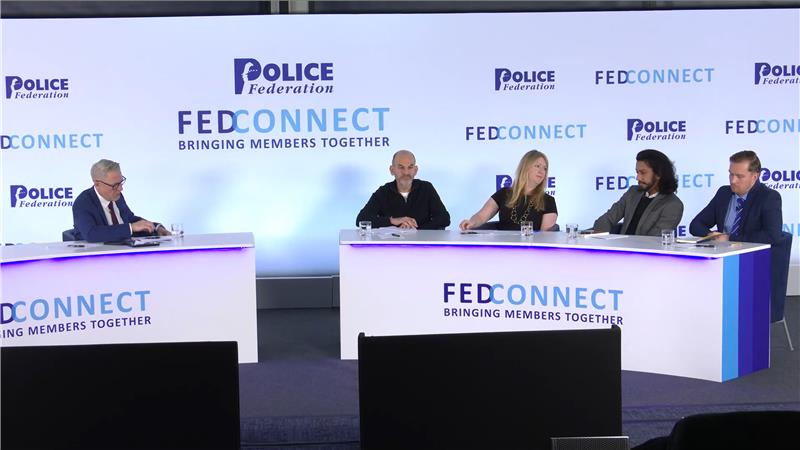“There isn’t an anti-policing agenda in the mainstream media”, former BBC Home Affairs correspondent and policing commentator, Danny Shaw told FedConnect 2024. He continued: “But you [police] do need to understand that journalists aren’t there to do your PR work for you."
This was just one of the takeaway points from the panel lead discussion during the ‘Policing and the Media’ workshop at the FedConnect conference.
The live discussion benefited from the contributions of Daily Mail Crime and Security Editor and Chair of the Crime Reporters’ Association, Rebecca Camber, NPCC Head of Media and Public Affairs, Alan Wood, and Head of Digital Practice at Portland Communications, Asad Moghal, as they joined Mr Shaw.
The panel discussed many high profile cases and the importance of the relationship between the media and the police. Of ever increasing importance, the panel also considered the role of social media, both positive and negative with particular concerns around misinformation and so-called ‘fake news’.
The issue of the NX121 trial was raised around specifically why a number of media outlets had pushed for the officer to be named ahead of the trial following the fatal shooting of Chris Kaba.
Rebecca Camber explained that to not name NX121 would have been a fundamental change in the principles of the judicial system, whereby someone accused of murder has anonymity.
Following the conclusion of the NX121 trial, when the officer was found not guilty, the Home Secretary stated that the Government plans to introduce a principle of anonymity for firearms officers on trial, unless convicted.
The panel discussed the importance of ‘non-reportable briefings’ and the role they play in keeping the media up-to-date with investigations whilst protecting the integrity of the work and investigation being conducted.
Failures to keep the media well briefed can make investigations harder as errors or misinformation can inadvertently be presented to the public in journalistic reports.
Far more concerning, the panel also considered the dangers of malicious social media usage in spreading blatantly false information.
Admittedly it’s not something that media professionals have much control over, however the panel were all in agreement in stating that it does highlight the importance of positive and productive media relations between the police forces and accredited media outlets. This symbiotic relationship needs to be protected and enhanced at all times.
Policing and the Media
The panel discussed many high profile cases and the importance of the relationship between the media and the police.
21 November 2024














